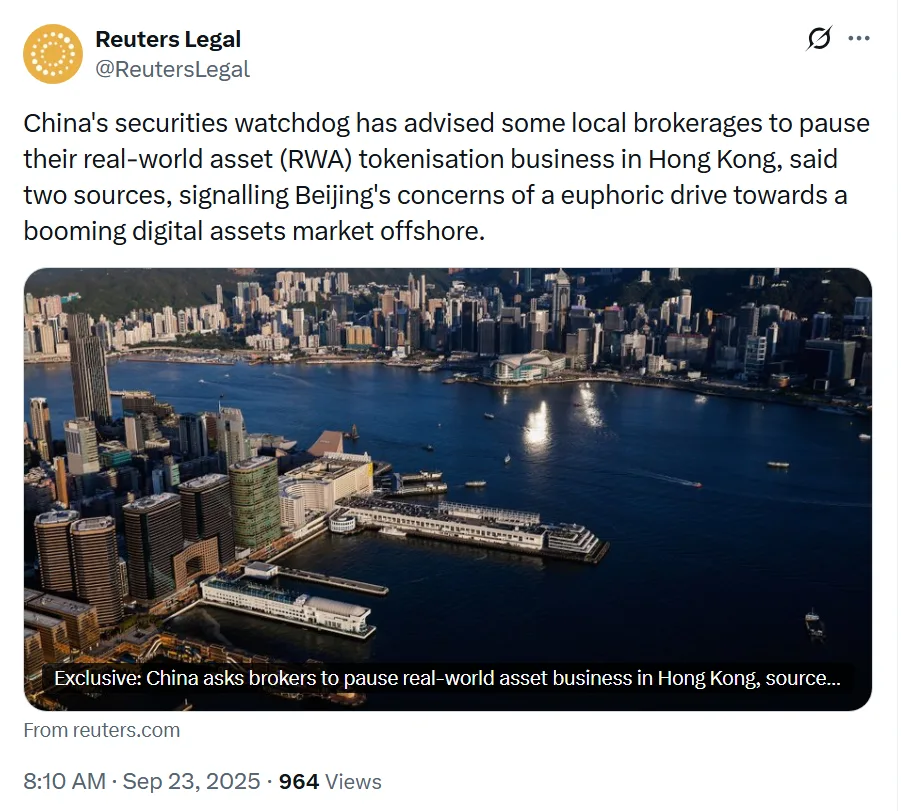China has informally instructed some of its domestic brokerages to pause their real-world asset (RWA) tokenization business in Hong Kong, sources told Reuters. The regulatory guidance, issued by the China Securities Regulatory Commission (CSRC), comes amid Beijing’s concerns over the rapid expansion of digital-asset initiatives conducted offshore.

At least two major brokerages have been advised not to conduct further RWA business abroad. Even though the regulations haven’t been published formally, it asked those in this business to strengthen their risk management practices and ensure that companies’ claims around tokenized assets must be backed by strong, legitimate underlying assets.
Hong Kong: A hotspot for tokenization
Hong Kong has become a focal point for RWA tokenization, part of its strategy to become a leading regional hub for digital assets. There is a growing number of Chinese firms that have been dabbling with RWA tokenization in recent years. For instance, GF Securities’ Hong Kong unit launched “GF tokens” in June. This was a yield-generating product backed by USD, HKD, and offshore renminbi. China Merchant Bank International (CMBI) helped raise 500 million yuan via an RWA-based digital bond. Similarly, property developer Seazen Group has set up a digital assets institute in Hong Kong to explore tokenizing intellectual property and property income.
Regulatory divergence & uncertainty
Globally, the RWA tokenization market is still small but growing. It was estimated at ~$29 billion as of 2025 and forecast to expand to over $2 trillion by 2030. The move by the CSRC shows the tension between Hong Kong’s ambitions to liberalize digital-asset products, including stablecoins, tokenized bonds, virtual asset-trading platforms, etc.. Meanwhile, Beijing is still very cautious, especially given past concerns about financial stability, risk of capital flight, asset backing, and claims made in tokenization.
It is unclear how long the pause will last or whether it will formalize into a regulation. The HKMA has indicated that Hong Kong is conducting legal reviews of RWA tokenization. Hong Kong is still exploring other use cases via “Project Ensemble,” which is a tokenization sandbox. Investor and market reactions have been mixed, with shares of brokerage firms dropping sharply on Tuesday.



